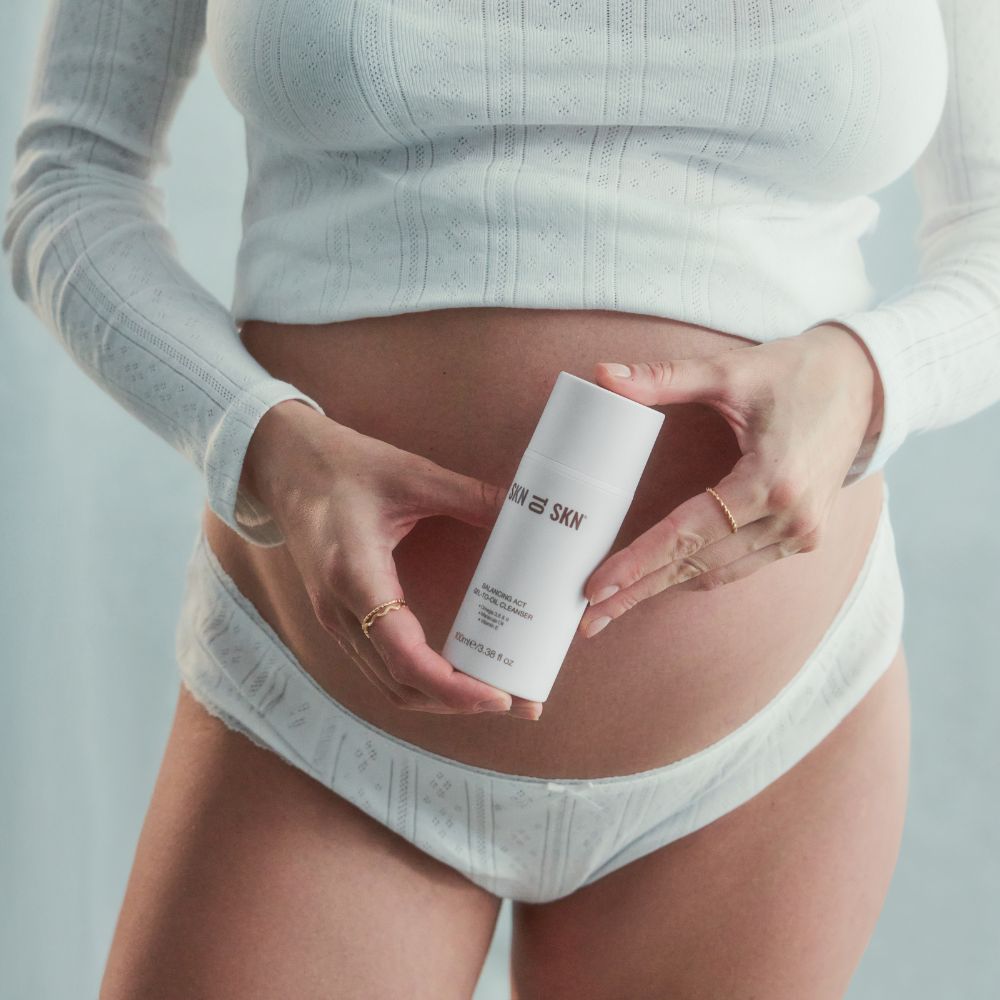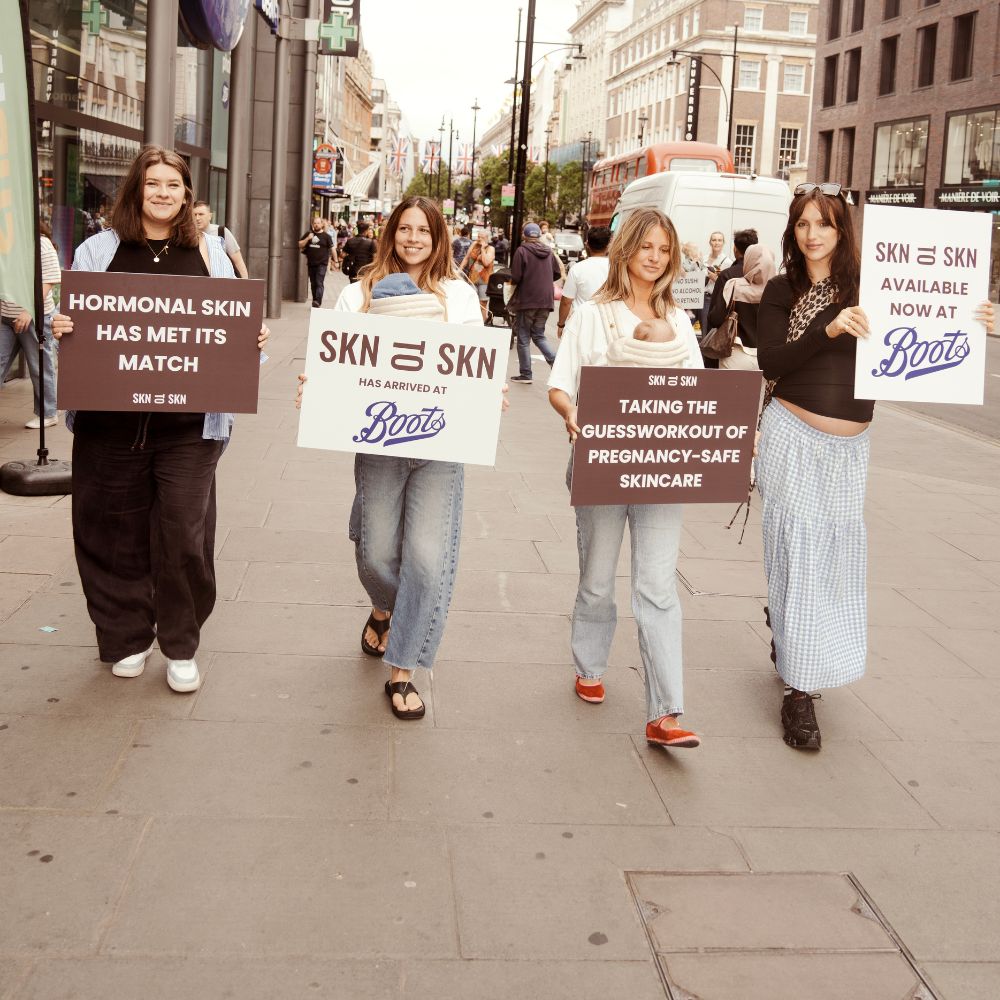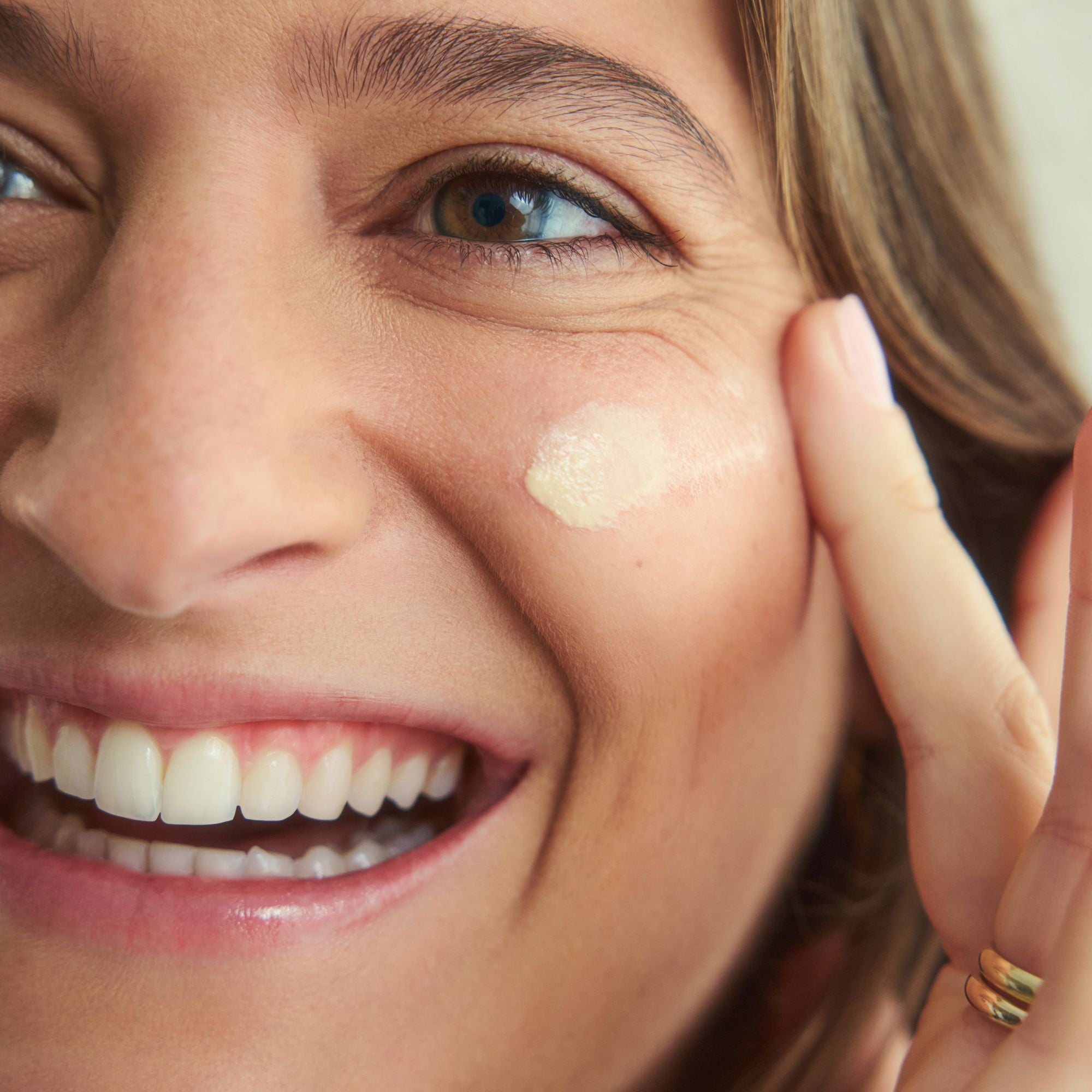What is IVF Treatment?
IVF Treatment, also known as In Vitro Fertilisation Treatment is a fertility treatment that helps others conceive a child by retrieving eggs from a woman’s ovaries and fertilising them with sperm in a laboratory. The resulting embryo(s) from this procedure is then transferred to the uterus.
Why Does IVF Affect Your Skin?
Hormonal changes play a significant role in both fertility treatments and skin health. Many fertility treatments involve the use of hormones to stimulate egg production, regulate ovulation, or prepare the uterus for implantation. These hormonal fluctuations can have a direct impact on the skin, leading to changes in texture, tone, and even hormone-related acne flare-ups - which is completely normal.
At SKN TO SKN, we understand that managing skin concerns during pregnancy and fertility treatments can be challenging. That’s why we’re committed to providing expert-backed insights and guidance from dermatologists and skin specialists to help you navigate this journey with confidence.
What Are The Most Common Skin Issues During IVF?
The most common skin issues reported during IVF treatments have been:
Acne: Hormonal imbalances can stimulate the sebaceous glands to produce more oil, leading to clogged pores and breakouts.
Dryness: Flaking and itching during IVF treatments are often reported as the skin’s natural barrier function is disrupted.
Skin Sensitivity: Sensitive skin is a common side effect of any hormonal shift in our bodies and can show in a variety of ways such as redness, itchiness, flushing and discolouration.
What Products Should You Avoid To Combat These Issues?
1. Retinoids: Any chemical in the retinoid family (retinol, tretinoin, retinyl acetate etc) are to be avoided during pregnancy and any fertility treatment as it can cause your skin to become even more sensitive and increases chances of birth defects.
What can you replace it with?:
Alzelaic Acid: Alzelaic Acid has anti-inflammatory and antibacterial properties which works well for people who often have breakouts and want to avoid them during pregnancy.
Niacinamide: Niacinamide helps to support sebum (the oil on your skin) control and helps by controlling excess oil production. It’s also used to calm skin redness as it’s anti-inflammitory.
2. Salicylic Acid: Salicylic Acid can be a strong chemical that can be too harsh for hormonally sensitive skin
What can you replace it with?:
Lactic Acid or Alzelaic Acid: Both of these are anti-inflammatory, gentle exfoliants that help brighten skin as well as calm redness and aid with acne.
3. Hydroquinone: Hydroquinone is suggested to be avoided during pregnancy and has limited data in regards to IVF and the effects it can have on the treatment.
What can you replace it with?:
Vitamin C or Niacinamide: Both of these ingredients are safe to use during pregnancy and IVF treatments as brightening agents to even out skin tone and help to achieve glowy skin.
4. Chemical Sunscreens: Chemical sunscreens contain active ingredients like oxybenzone, avobenzone, octinoxate, homosalate, octisalate, and octocrylene, which work by absorbing UV rays and converting them into heat. However, some of these chemicals have been linked to hormone disruption and skin irritation, making them less ideal during IVF.
What can you replace it with?:
Mineral Sunscreens: Mineral sunscreens that contain zinc oxide and titanium dioxide are a safer choice during IVF. These ingredients still block the UV rays from the sun, work as soon as applied unlike chemical sunscreens and are gentle on sensitive skin.
What do our experts suggest your skincare routine should look like?
Cleanser:
Gentle, hydrating formulas that are smooth to apply without a sticky finish are ideal for tackling dry skin. Our Balancing Act Gel-To-Oil Cleanser is a gentle yet effective cleanser that melts away makeup, SPF, and impurities in one simple step.
Serum:
A serum that contains hyaluronic acid or Peptilium is best for a healthy glow like our Multi-Tasking Face Serum.
SPF Moisturiser:
A fragrance free SPF moisturiser containing niacinamide is perfect for keeping skin hydrated and protected through the day. Our Glow & Go Daily Moisturiser with Mineral SPF 30 is a silky multi-tasking daily moisturiser with niacinamide, hyaluronic acid and broad-spectrum mineral SPF 30.
Night cream:
A nourishing night cream is perfect for protecting the skin's natural barrier while you sleep. Keep an eye out for ones including hyaluronic acid or Ectoin. Our Sleep Cheat Night Cream is a medium-weight night cream that absorbs easily, leaving skin feeling soft, supple and perfectly prepped for restful sleep.
If you have more questions, sign up below to stay updated on our dermatologist written blogs, where we answer all your skincare concerns.
 Written by Dr Raj Arora, SKN TO SKN GP Advisor
Written by Dr Raj Arora, SKN TO SKN GP Advisor





